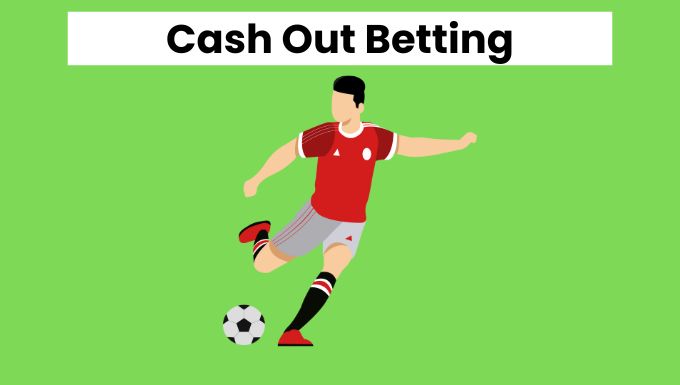Becoming a pro bettor is an exciting journey that combines passion for sports with the thrill of strategic thinking. When I first started betting, I was drawn in by the excitement of the game and the potential for profit. However, I quickly realized that success isn’t just about luck; it’s about knowledge, research, and discipline.
As you dive into the world of sports betting, you’ll find that it’s essential to grasp the basics, from understanding odds to managing your bankroll wisely. Doing your homework is key; knowing the teams, players, and stats can make all the difference when placing your bets.
What really sets pro bettors apart is their ability to spot value, identifying opportunities where the odds don’t reflect the actual chances of an event. This requires patience and a keen eye for detail.
Most importantly, staying level-headed through wins and losses is crucial. Emotions can cloud judgment, but sticking to a logical approach will serve you well in the long run.
Focus On Value , Not just Winners
Most people think sports betting is just about picking winners, but that’s the fastest way to lose money. Sharp bettors don’t just try to guess who will win; they look for value in the odds.
Value means finding bets where the odds are better than they should be. Let’s say a team has a 50% chance to win, which translates to fair odds of +100 (2.00 in decimal). If a sportsbook is offering +120 (2.20 in decimal), that’s a bet worth taking, even if the team loses. Why? Because over time, if you keep getting better odds than reality suggests, you’ll come out ahead.
Most casual bettors ignore this. They’ll see a big-name team and think, They should win, so I’ll bet them. But if their odds are -150 (1.67 in decimal) and they only win 60% of the time, that’s actually a bad bet. You might cash your ticket, but in the long run, you’re losing money on those kinds of plays.
This is why sharp bettors don’t care about short-term results. You can place a great value bet and still lose. What matters is that over hundreds of bets, your edge plays out. Betting on value, not just winners, is what separates profitable bettors from everyone else.
Research, Data And Analysis
If you want to be a sharp bettor, you can’t just rely on gut feelings; you need research, data, and analysis. The sportsbooks aren’t guessing when they set odds, so why should you?
Start with basic stats, but don’t stop there. Everybody looks at team records, head-to-head results, and star player performances. Sharp bettors go deeper. Advanced metrics like expected goals (xG) in soccer, DVOA in football, and PER in basketball give a better picture of a team’s true strength beyond just wins and losses.
Data is your best friend. Start tracking everything, not just your bets, but also team performance metrics and line movements. Tools like advanced stats websites and betting models can give you an edge. They help you see patterns and opportunities that casual bettors miss. For example, maybe a team is undervalued because they’ve had a tough schedule, or a player is due for a breakout game. Data helps you spot these situations.
Analysis ties it all together. It’s not enough to just collect information, but you need to interpret it. Compare what the data says to what the odds are telling you. Are the books underestimating a team? Is the public overreacting to a recent result? This is where you find value.
Line shopping
Line shopping might sound like a small detail, but trust me, it’s one of the easiest ways to gain an edge as a bettor. When I first started, I didn’t think much about it; I’d just place my bets at whatever sportsbook I happened to be using. But once I realized how much money I was leaving on the table, I made it a non-negotiable part of my routine.
Here’s the deal: different sportsbooks set different odds for the same game. Sometimes the difference is small, like a half-point on a spread or a few cents on a moneyline. But over time, those small differences add up. For example, if you’re betting on an NFL game and one book has the line at -3 while another has it at -2.5, that half-point could be the difference between a win and a loss. Or, if you’re betting on a moneyline, one book might offer +150 while another offers +160. That extra ₦10 on a ₦1000 bet might not seem like much, but it adds up over hundreds of bets.
To make line shopping work, you need accounts with multiple sportsbooks. It’s a bit of extra effort upfront, but it’s worth it. I always check at least three or four books before placing a bet. There are also tools and websites that compare odds across books, which can save you time.
Bankroll Management
If you don’t manage your bankroll properly, it doesn’t matter how good you are at picking bets you’ll go broke. Sharp bettors don’t just focus on winning bets; they focus on staying in the game long enough to profit over time.
The first rule? Never bet more than you can afford to lose. If you’re throwing down rent money, you’re already making bad decisions. Your bankroll should be separate from your regular expenses and treated like an investment.
Next, use a consistent staking strategy. A common approach is flat betting which is risking the same percentage of your bankroll on every bet, usually 1-3% per wager. This keeps you from going on tilt and chasing losses. If your bankroll is ₦10,000, a 2% bet would be ₦200. Even if you hit a rough patch, you’ll have plenty of bets left to recover.
Some sharp bettors use the Kelly Criterion, which adjusts bet sizes based on edge and bankroll size. It’s a bit more advanced, but the idea is simple: bet more when you have a bigger edge, and bet less when you don’t.
The key is discipline. Chasing losses, doubling down, or suddenly increasing stakes because you’re “feeling lucky” are all ways to wipe out your bankroll fast.
Utilizing Betting Tools
When I first started betting, I relied mostly on gut feelings and basic stats I found online. I thought that was enough. But as I dug deeper, I realized that the best bettors weren’t just watching games; they were using tools to give them an edge. That’s when I started exploring betting tools, and it completely changed my approach.
One of the most useful tools is odds comparison sites. If you’re not shopping around for the best odds, you’re leaving money on the table. A simple difference like +105 vs. +110 might not seem like much, but over hundreds of bets, it adds up.
Another key tool is bet tracking software. Keeping records of your bets manually is fine, but tools like Betstamp, Trademate Sports, or even a simple spreadsheet can help you see where you’re making money and where you’re leaking it. If you’re consistently losing on parlays but winning on straight bets, you’ll know where to adjust.
Line movement trackers are also huge. If sharp money is hitting a side and the odds are moving, you can react before the value disappears. Some books adjust faster than others, so spotting these moves early can give you an edge.
Other tools, like advanced stats sites (FBRef, NBA Advanced Stats, etc.), can help you break down games beyond just wins and losses. Expected goals (xG), efficiency ratings, and betting models all help find value.
Avoiding Emotional Bets
If you want to be a sharp bettor, you have to take emotions out of it. Betting based on feelings instead of logic is a fast way to lose money.
One of the biggest mistakes is betting on your favorite team. It’s hard to be objective when you’re emotionally invested. You might convince yourself they have a better chance than they actually do or ignore key weaknesses. Sharp bettors don’t bet with their hearts—they bet with data and value.
Another emotional trap is chasing losses. Every bettor goes through losing streaks, even the sharpest ones. But doubling your stake on the next game to “make it all back” is how people go broke. If you’re making a bet just because you’re frustrated, walk away. Stick to your bankroll strategy and trust the long-term process.
On the flip side, winning streaks can also lead to bad bets. When things are going well, it’s easy to feel invincible and start betting bigger than usual. That’s how you give back all your profits. Stay disciplined—keep betting the same way, no matter if you’re up or down.
Lastly, don’t let hype or public opinion sway you. Just because everyone is betting on a certain team doesn’t mean it’s a good bet. Sharp bettors focus on value, not what’s popular.
Becoming a sharp bettor isn’t about being perfect—it’s about being disciplined, patient, and smart. I’ve made plenty of mistakes along the way, but each one taught me something valuable. The key is to focus on the basics: manage your bankroll, find value in the odds, shop for the best lines, and keep your emotions in check. It’s not glamorous, but it works.
Remember, this isn’t a get-rich-quick scheme. It’s a grind. You’ll have losing streaks, bad beats, and moments of doubt. But if you stick to your system and keep learning, you’ll see progress over time. The best bettors I know aren’t the ones who hit big parlays or chase flashy wins—they’re the ones who make consistent, thoughtful decisions.
At the end of the day, sports betting should be fun, but it’s also a skill. Treat it that way. Track your bets, analyze your results, and always look for ways to improve. If you can do that, you’ll not only become a sharper bettor—you’ll also enjoy the process a lot more.


